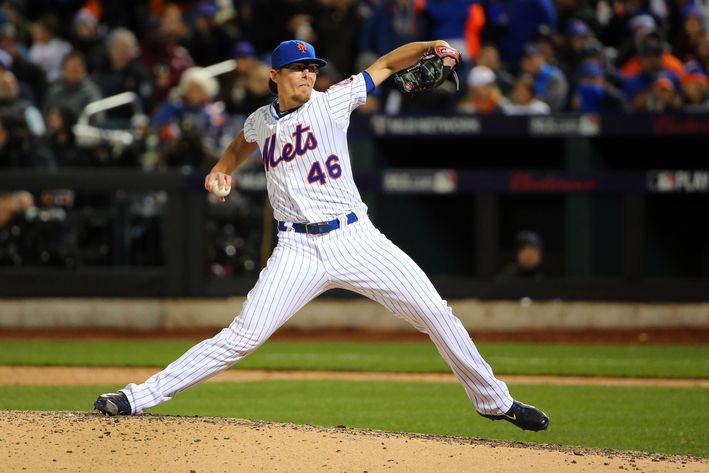NYTimes.com:
When Chase Utley’s slide broke Ruben Tejada’s right leg in Game 2 of a National League division series between the Los Angeles Dodgers and the Mets, the relatively common tactic of trying to break up a double play was put under a microscope, with many assuming that a change in baseball’s rules would result.On Thursday, that change happened when Major League Baseball and the players’ union agreed to a reworking of the rules regarding slides, while potentially complicating matters by making “neighborhood plays” at second base reviewable.“Our goal in amending the slide rule was to enhance player safety, reduce incidents of injury and to do it in a way that respects and preserves the bona fide hustle plays that are integral to our game,” Tony Clark, the executive director of the players’ union, said in a statement. “I am optimistic that this new rule will accomplish those goals.”Under the new policy, designated Rule 6.01(j), a slide to break up a double play will have to include a bona fide attempt to reach and remain on the base. Contact with the fielder is permissible, but the runner cannot change his path to initiate contact or engage in a “roll block.”The plays will be subject to video review, and if it is determined that the runner did not engage in a bona fide slide attempt, interference will be called, and both the runner and the batter can be called out.
I understand MLB taking away what Utley did, which was essentially going out of his way to break up a double play, but taking away the 'neighborhood play is just taking things a step too far. After all, it's hard enough turning double plays as it is and then there's player's safety to be concerned about when you consider the effort it takes to make actual tags while throwing, etc.
